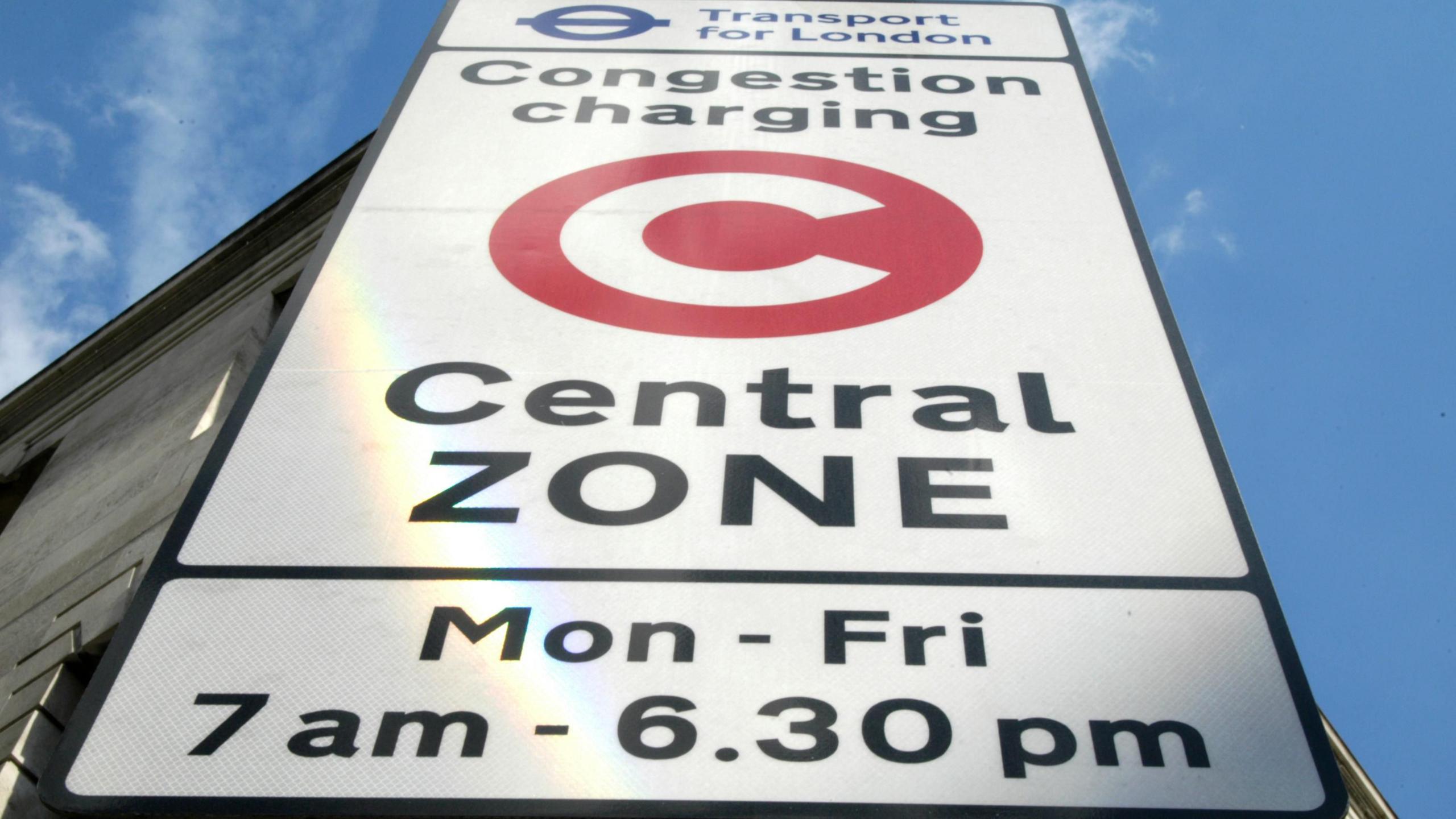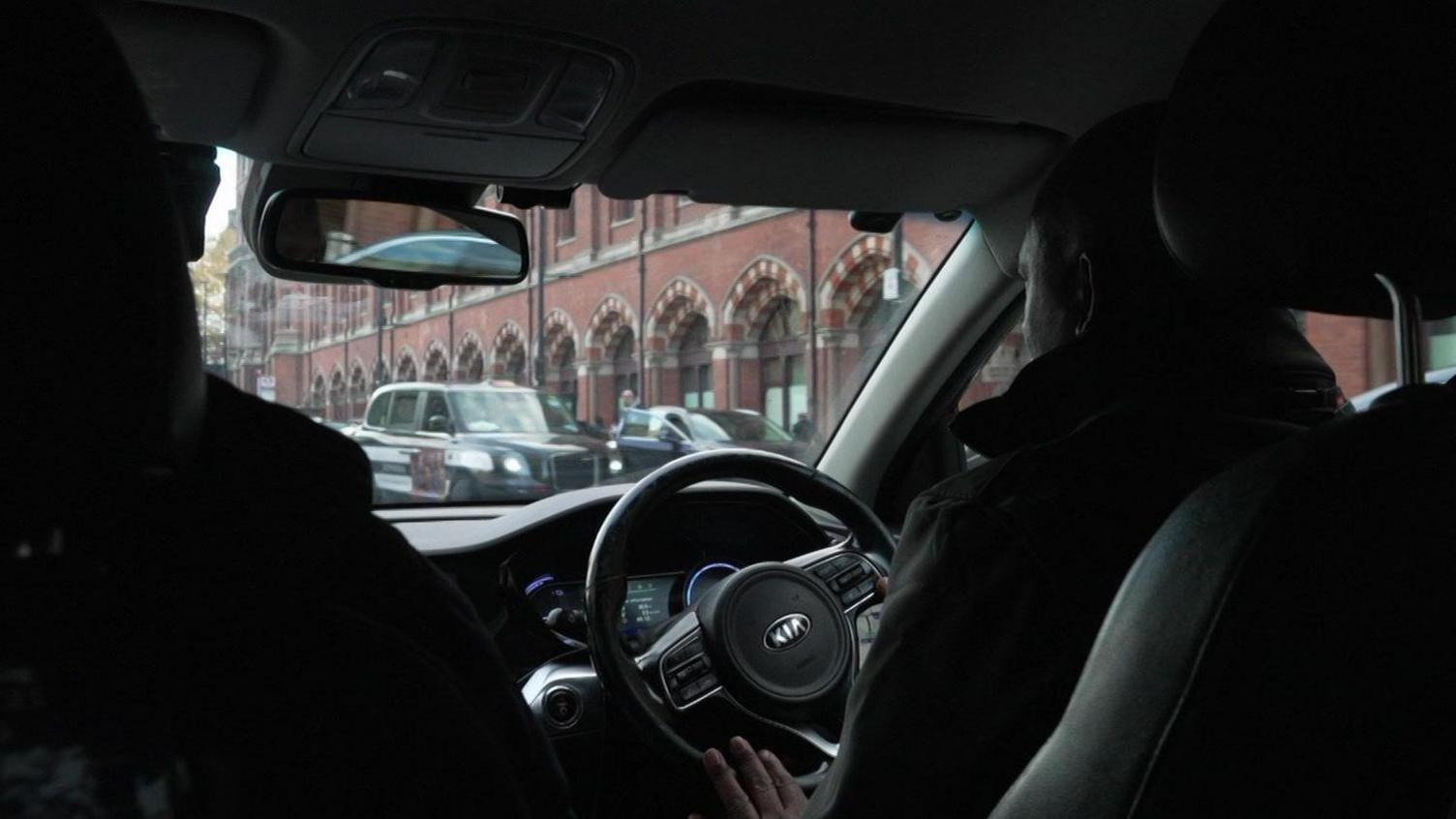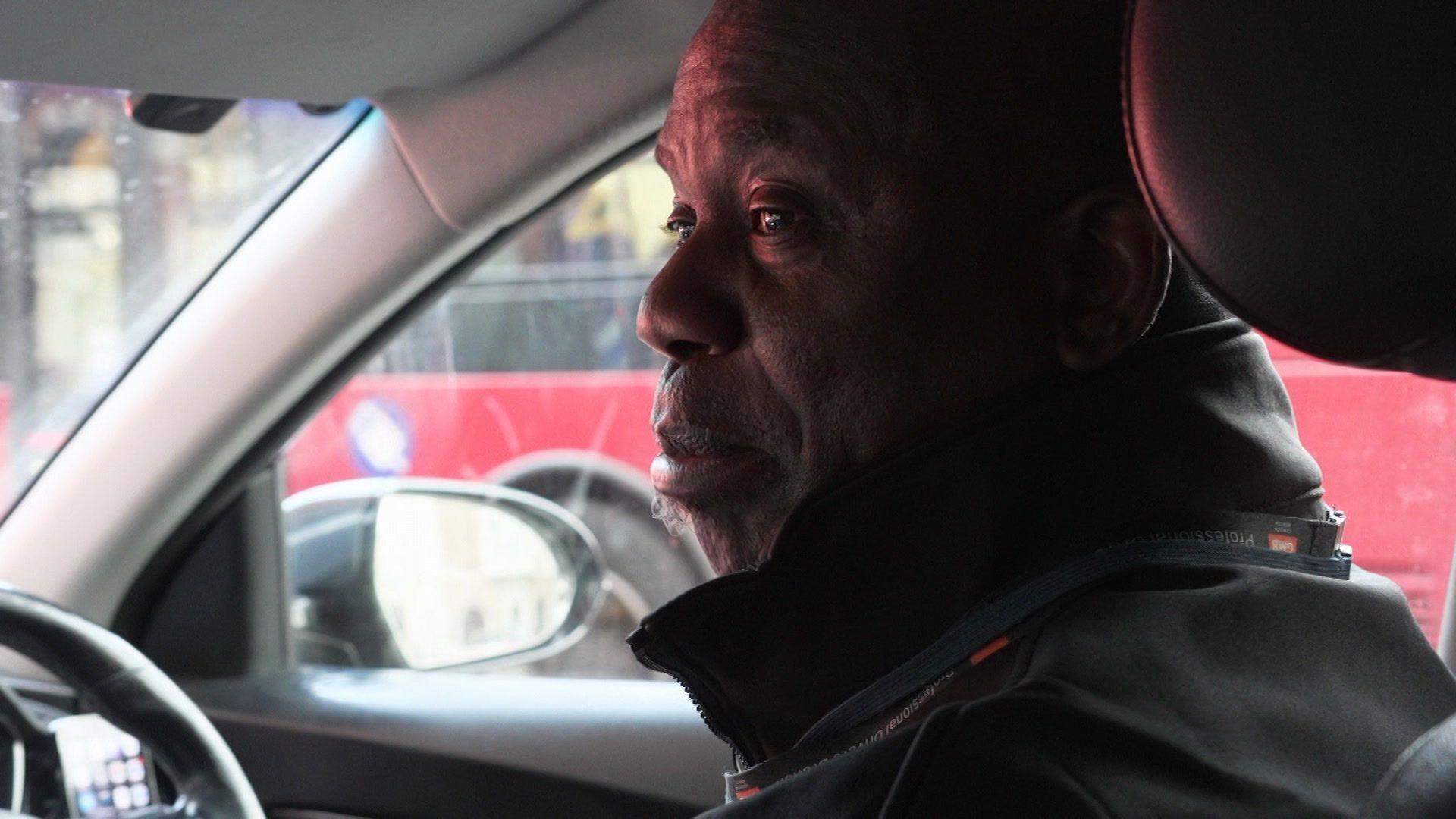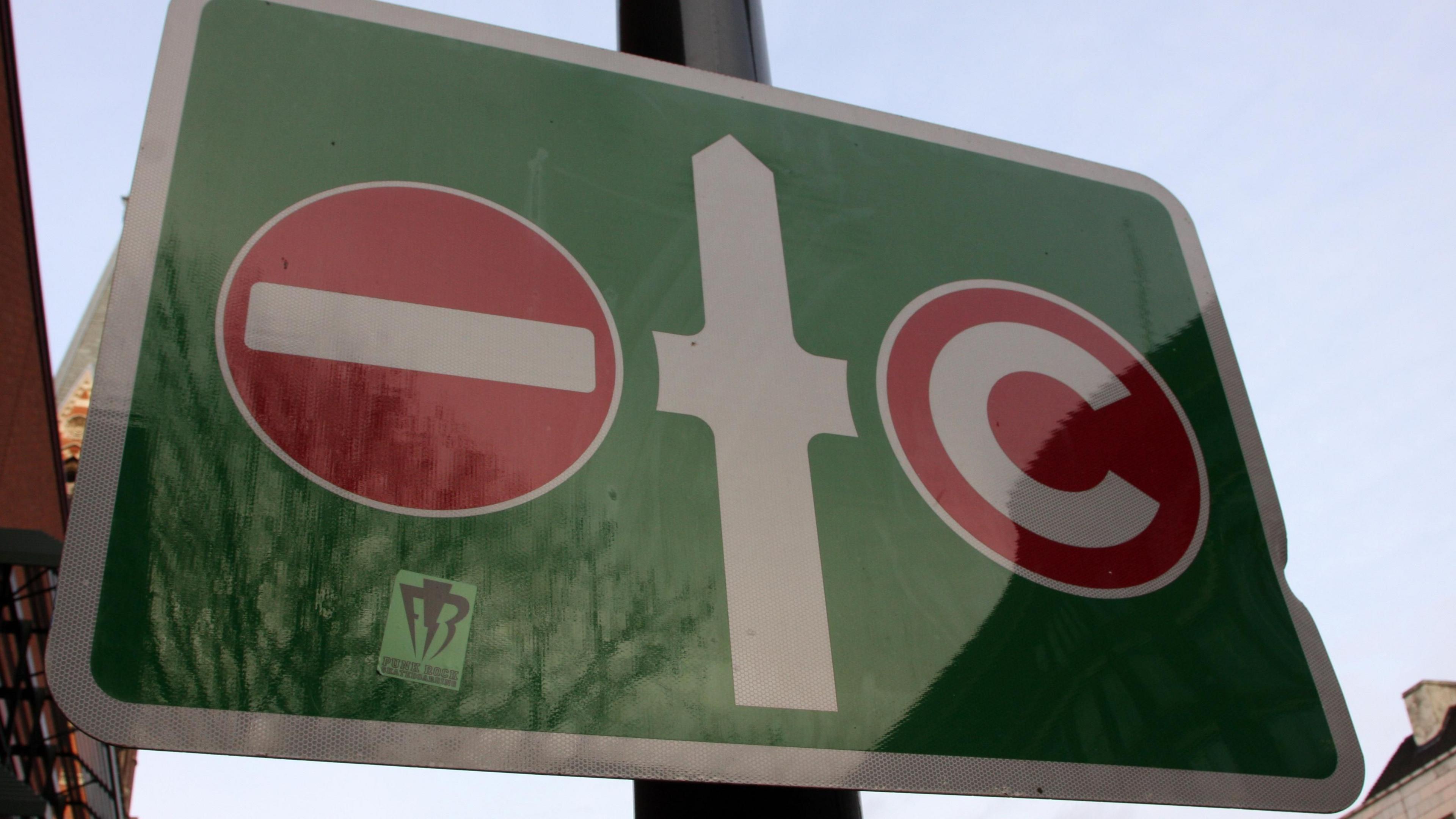EV congestion charge 'will increase minicab fares'

The congestion charge in central London is due to increase to £18 a day
- Published
Proposed changes to make electric vehicles pay the congestion charge would cause minicab fares to rise and stop people switching away from diesel and petrol, drivers say.
The plan is for owners of electric vehicles (EVs) to pay to drive in the capital's congestion charging zone from next year.
London's congestion charge is due to increase by 20% to £18 a day from 2 January.
Electric cars and vans had been exempt from paying the fee under a Cleaner Vehicle Discount but that will be scrapped from 2026. Transport for London (TfL) says the changes are necessary to reduce congestion due to the rising number of EVs.

From January, the drivers of EVs will have to pay the congestion for the first time
Opponents say the move will reduce the take-up of cleaner EVs and increase minicab fares and stall the move away from petrol and diesel vehicles.
TfL says the congestion charge will increase from £15 to £18 a day from 2 January "to make sure it remains effective".
Electric vehicles will also have to pay for the first time. There will be a 50% discount for electric vans, HGVs, light quadricycles and heavy quadricycles registered for Auto Pay.
Electric cars will get a 25% discount if registered for Auto Pay, and will have to pay £13.50 a day.
From March 2027, for new applicants only, the 90% residents' discount will also only be available for EVs.

Minicab driver Kola Olalekan says the changes will cause Uber fares to rise
Kola Olalekan has driven an electric minicab in central London for six years. He says having to pay £13.50 a day will put other drivers off getting EVs.
He says it could also cause the fares to rise on ride-hailing apps such as Uber and Bolt as there will be fewer drivers.
"There's going to be a drop," he says.
"And when there's a drop of the number of drivers available in central London, that will affect the fare that riders are going to be paying.
"There's going to be a surge. This job is based on surge pricing. So absolutely fares are going to go up, there will be fewer Ubers and no-one will want an EV."

London's congestion charging zone has been in place since 2003
Edmund King, from the AA, says its research shows the majority of drivers are not quite ready to go electric - and taking away the incentive of being exempt from the congestion charge "may backfire on London and backfire on the environment".
"Getting rid of the discount, there is no doubt it will put off many drivers," he says.
"And when we look at congestion in central London, let's be frank the speed of traffic has been the speed of a horse and cart for years so to be honest a few more electric vehicles isn't going to make much difference.
"We do feel this is a negative step. Getting rid of the exemption is coming far too early."
TfL faces calls to keep Congestion Charge exemption
- Published15 August
Congestion Charge set to rise by 20% to £18
- Published27 May
End to discounts for zero-emission vehicles
- Published1 July 2024
TfL had previously proposed to scrap the electric vehicle exemption entirely.
It says without changes to the congestion charging scheme, about 2,200 more vehicles will use the congestion charging zone on an average weekday next year, leading to increased congestion and undermining the current scheme.
In 2030 the discounts to electric vehicles will be reduced further.
From 4 March 2030 it will be reduced to 25% for electric vans, HGVs, light quadricycles and heavy quadricycles registered for Auto Pay.
The electric cars reduction will be reduced to a 12.5% discount.
A formal announcement on the proposed changes to the congestion charge is due in the next few weeks.
Listen to the best of BBC Radio London on Sounds and follow BBC London on Facebook, external, X, external and Instagram, external. Send your story ideas to hello.bbclondon@bbc.co.uk, external